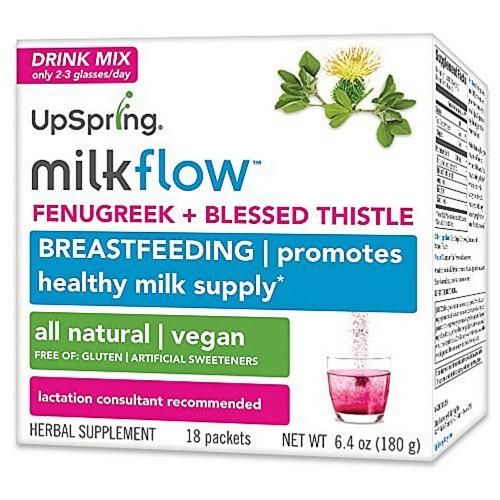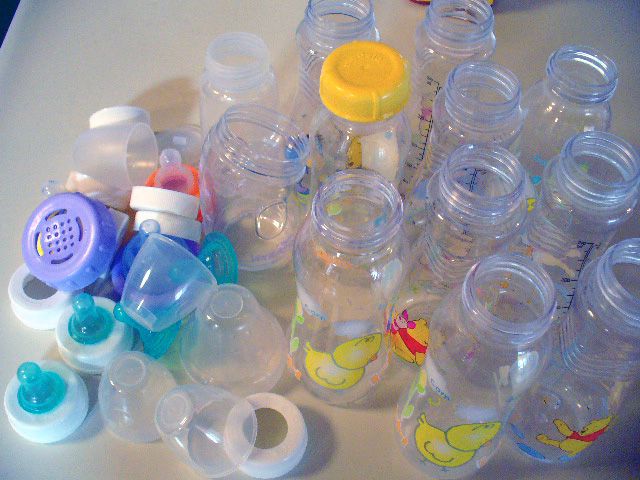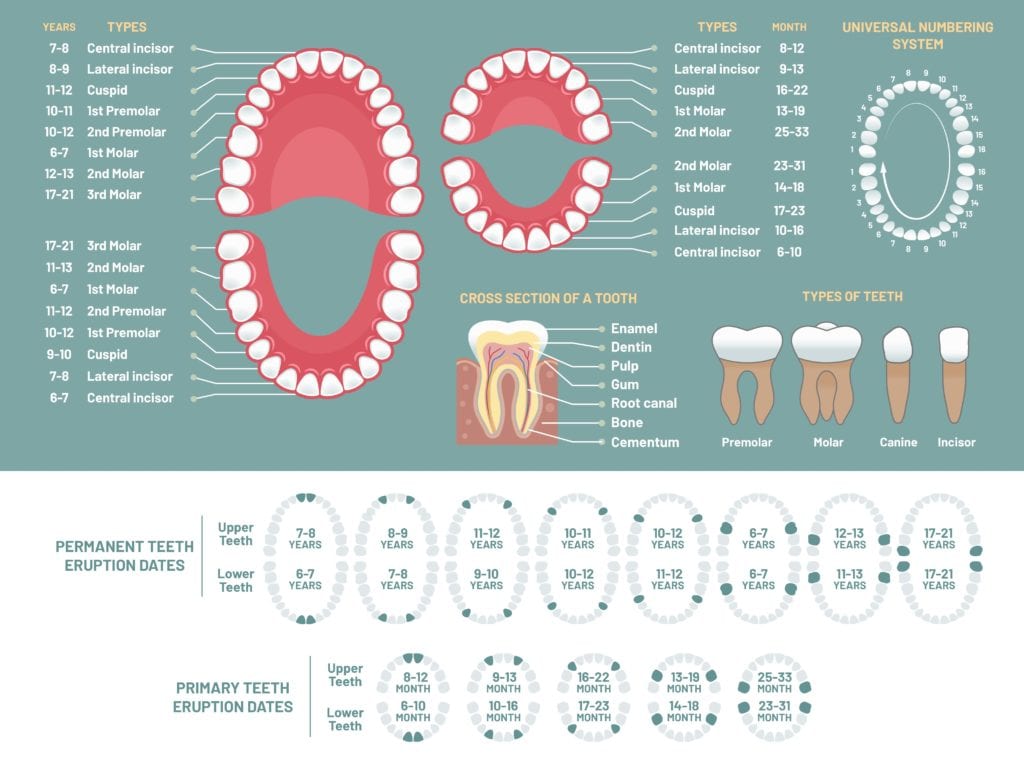Breastfeeding supplement to increase milk supply
Best Supplements to Increase Milk Supply
Get the Exclusive Pumping Playbook! Shop Now
Home » Increasing Milk Supply » Best Supplements to Increase Milk Supply
Created On:  | Updated: | By Amanda | 13 Comments
There are tons of supplements to increase milk supply. Fenugreek, nursing teas, tinctures – what are the best ones, and do they actually work? Below is an overview of the best lactation supplements for milk supply.
This post may contain affiliate links, which means if you click a link and take action, I may make a small commission at no additional cost to you. I only recommend products I love! More information here.
What to Try BEFORE Taking a Breastfeeding Supplement
There is some amount of risk to trying any breastfeeding supplement. For example, though many people (including me) have seen an increase in supply when taking fenugreek, others have actually seen a decrease.
Therefore, before trying a lactation supplement to increase the amount of milk you pump, I would first try ways of increasing supply that have little or no risk. These include:
- If you’re exclusively pumping, make sure that you’re sticking to your pumping schedule as much as you can, and that you’re pumping at least 120 minutes per day. More on pumping schedules here.
- Do breast compressions while you pump.
- If you’re noticing your supply dropping and you’ve been pumping for a few months or more, try replacing your breast pump parts. They can wear out and get microscopic tears, and this can affect the suction.
- If possible, try power pumping once a day for a week.
Do Breastfeeding Supplements Work?
Most supplements DO work – for some people.
Unfortunately, milk supply is not straightforward, and the only way to know if something will work is to try it. Some women see a small boost when they eat oatmeal for breakfast; others don’t.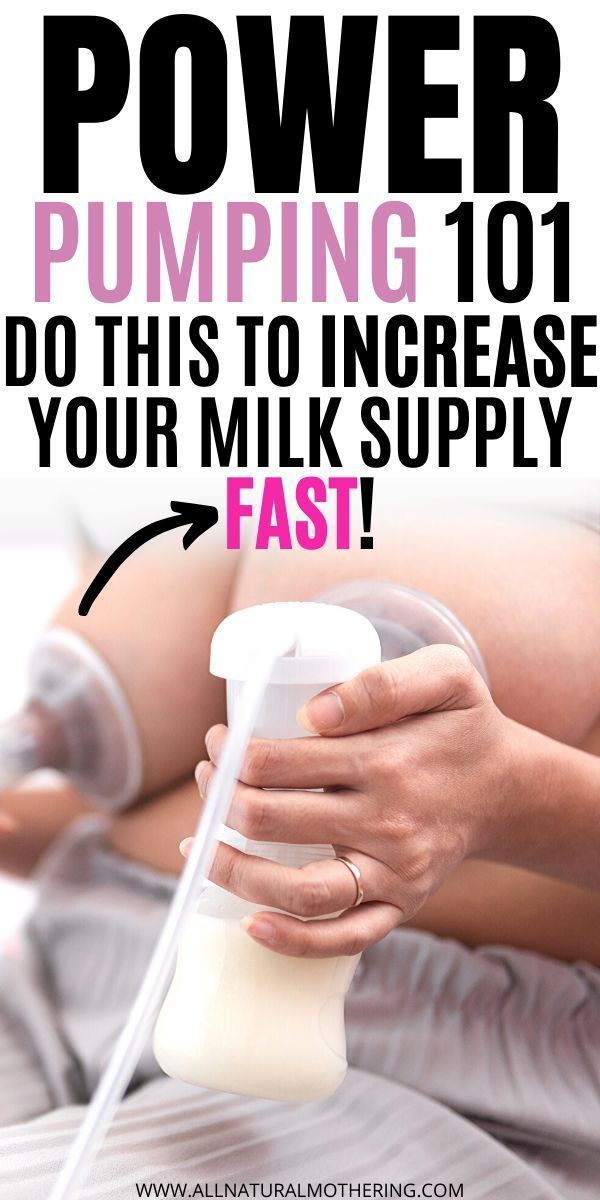 Many people swear by nursing teas, but they do nothing for others.
Many people swear by nursing teas, but they do nothing for others.
Different things work for different people, so you may just need to try a few things to see what works for you. My suggestion is to limit the amount of money that you spend on any one thing until you’ve seen good results with it yourself.
Breastfeeding Supplements to Increase Milk Supply
Here are some of the best breastfeeding supplements.
Oatmeal
There haven’t been any formal studies as to how effective oatmeal is as boosting milk supply; however, enough women have noticed a difference in milk supply after eating it that it’s widely recommended as a supply booster. Personally, I noticed an increase of 1-2oz per day on the days that I ate oatmeal for breakfast.
Oatmeal has a lot of advantages as a galactagogue – there isn’t any risk to trying it, it’s very affordable, and it doubles as breakfast.
I’ve had the best results with just having a bowl of oatmeal for breakfast.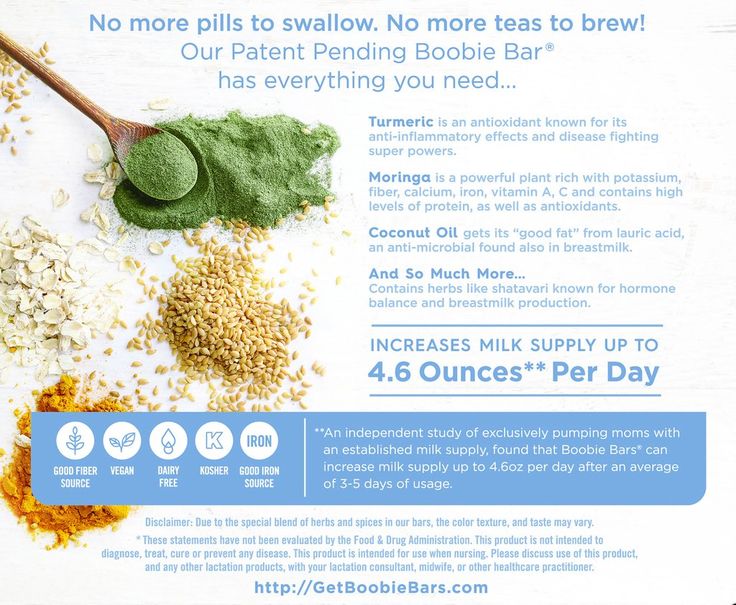 However, if you dislike oatmeal, you can also make lactation cookies or brownies that include it as a galactagogue ingredient. Also, there are a lot of overnight oats recipes that are really good.
However, if you dislike oatmeal, you can also make lactation cookies or brownies that include it as a galactagogue ingredient. Also, there are a lot of overnight oats recipes that are really good.
Here is an unscientific poll I did on Instagram regarding oatmeal’s effectiveness:
Legendairy Milk
Legendairy Milk makes several lactation supplements, such as Pump Princess, Liquid Gold, and Milkapalooza.
Legendairy Milk supplements do not contain fenugreek and instead contain galactagogues such as goat’s rue, fennel, moringa, and black cumin.
Here’s an unscientific poll regarding Legendairy Milk:
(Legendairy Milk reached out to me and gave me a 15% off discount code for any of their supplements – use EPUMP for 15% off!)
Fenugreek Capsules
Fenugreek capsules are easy to take, there’s a simple way to tell if it’s working, and it’s very effective for a lot of people. When I took it, fenugreek (along with sticking to a strict pumping schedule) helped me get my supply up from 24 oz per day to 35 oz per day.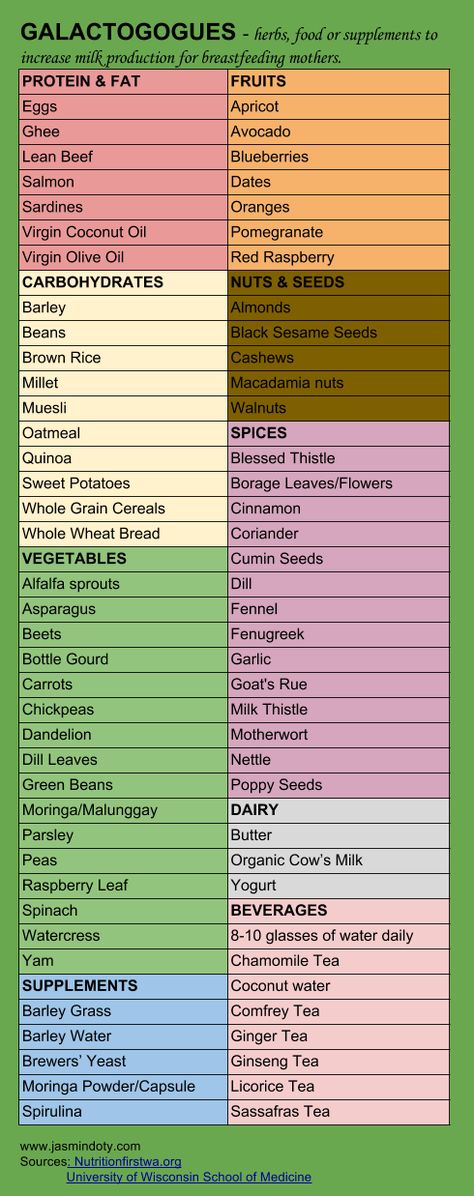
The dosage that you should start at is two capsules three times per day, and if you don’t smell like maple syrup after a few days, you can increase it to three capsules three times per day. (Smelling like maple syrup is the trick to knowing that it’s working.)
If fenugreek works for you, you should see an increase within a few days of noticing the maple syrup smell.
However, before you take it, you should know that some people actually experience the opposite effect – that is, fenugreek decreased their supply.
Here’s an unscientific poll regarding fenugreek:
More information on fenugreek, milk supply, and the risks is available here.
Mother’s Milk Tea
Mother’s Milk Tea is probably the most ubiquitous and easy to find nursing tea – you might be able to find it in your grocery store.
This tea contains fennel (560 mg), anise (350 mg), coriander (210 mg), fenugreek (35 mg), and blessed thistle (35 mg). It should be noted that these dosages – fenugreek and blessed thistle in particular – are far lower than if you were to take these herbs in capsule form; the tea has less than 10% of what’s in one capsule.
The manufacturer recommends drinking 3-5 cups of tea per day. To make the tea, you steep it in 8 oz of hot water for 10 minutes, and then drink it. It tastes like licorice, and you can sweeten it with sugar or honey or whatever you’d prefer.
Here’s an unscientific poll regarding Mother’s Milk Tea:
(If you don’t like the taste, I made a recipe called “Lactorade” that mixes this tea with lemon lime Gatorade that might work for you.)
Blessed Thistle
Blessed thistle is a plant that is thought to increase milk supply when ingested; these capsules contain the stem, leaf and flower.
Blessed thistle’s effectiveness hasn’t been studied much on its own. Instead, in all of the studies, the subjects have taken both blessed thistle and fenugreek.
In the studies, the women who did see an increase in milk supply noticed it within a few days (it ranged between 2-48 hours).
These lactation supplement capsules are 390mg, and the recommended dosage is three capsules three times per day.
Here’s an unscientific poll regarding blessed thistle:
Let There Be Milk Best Lactation Liquid
If you don’t like tea, Let There Be Milk! might be a good alternative. It’s a concentrated blend of galactogue herbs, specifically blessed thistle, red raspberry leaf, fenugreek, goats rue, and marshmallow root.
You take it by either adding it to another liquid (they recommend 1-2 oz of the other liquid, and you can mix it with anything from tea, Gatorade, Coke – you’ll want to experiment to see what works best for you as far as taste), or just taking a few drops by itself. I tried it on its own and thought it tasted disgusting, but it was tolerable when mixed with 2 oz of Diet Coke.
The recommended dosage is 1 ml, 4 times per day.
Mommy Knows Best Fenugreek Free Lactation Supplement
Mommy Knows Best makes a great lactation supplement without fenugreek for those who are sensitive to fenugreek or who would prefer not to take it.
It contains a mixture of blessed thistle, milk thistle, goat’s rue, and marshmallow root.
One great thing about this supplement is that you only have to take one capsule per day (where with some others, you can be taking two or three several times per day).
Majka Lactation Protein Powder and Protein Bites
If you like to use protein powder, Majka lactation protein powder (also available on Amazon) is a great option.
I made the blueberry oatmeal smoothie recipe on their website, and it was really good! The protein powder contains ginger root, fenugreek, and turmeric for milk supply and lactation support.
The lactation bites are meant to be a snack (they are very dense and surprisingly filling) and are made with oats, flax seed, fenugreek, and turmeric for increasing milk supply.
Did I miss any of the best milk supply supplements you’ve used? What has your experience with these been?
References
- Bonyata, Kelly, IBCLC. “Fenugreek Seed for Increasing Milk Supply.” https://kellymom.com/bf/can-i-breastfeed/herbs/fenugreek/
- Newman, Jack, MD.
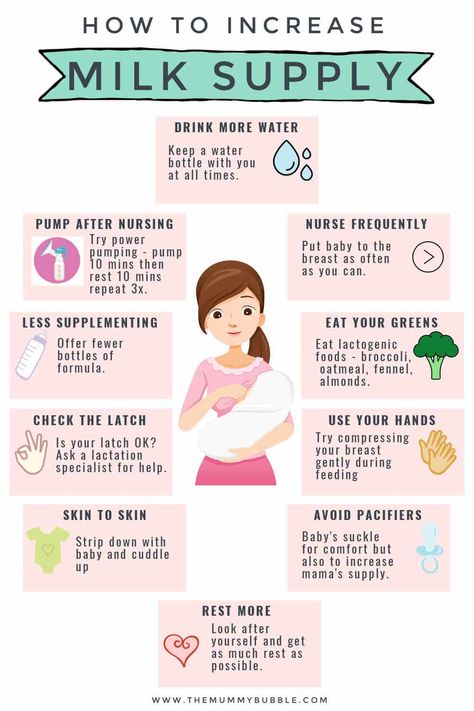 “Herbs for Increasing Milk Supply” https://www.canadianbreastfeedingfoundation.org/induced/herbs.shtml
“Herbs for Increasing Milk Supply” https://www.canadianbreastfeedingfoundation.org/induced/herbs.shtml - Sim, Tin Fie. “The Use, Perceived Effectiveness and Safety of Herbal Galactagogues During Breastfeeding: A Qualitative Study” https://www.ncbi.nlm.nih.gov/pmc/articles/PMC4586661/
posted in: Increasing Milk Supply
Featured on:
As am Amazon associate I earn from qualifying purchases.
The Best Lactation Supplements to Boost Your Supply
Best Products; Courtesy Pink Stork
Of all of the issues I thought I'd have during pregnancy and breastfeeding, not making enough milk wasn't one of them — and yet, that's exactly where I found myself. My lactation consultant recommended several lactation supplements to boost my supply, and while it wasn't an overnight success, they were a big help — and they might just help you, too.
Making Milk
So many of us (myself included) are pretty unaware of our body’s needs when lactating.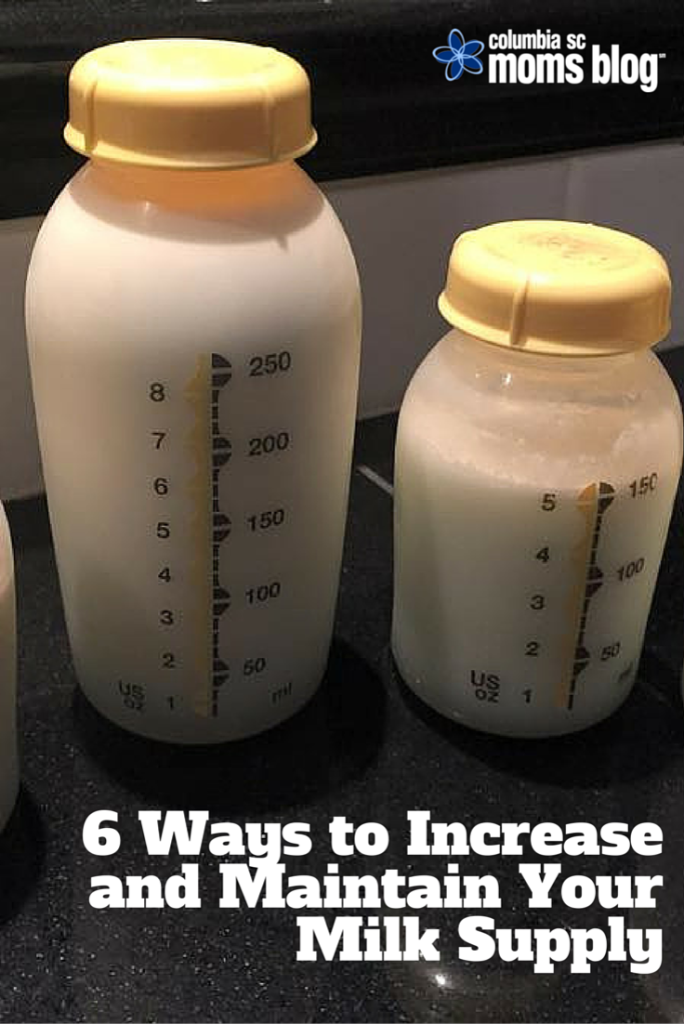 Yes, a woman’s body is incredible, and it can produce nutritious milk to nurse your baby — but it’s essential to make sure you’re eating enough and staying hydrated. That’s why before you start using supplements, you need to understand what your nutritional needs are, according to Kiana Ayers, IBCLC, RN, LCCE; founder of Mamas and Tatas and lactation expert for Sweetie Pie Organics.
Yes, a woman’s body is incredible, and it can produce nutritious milk to nurse your baby — but it’s essential to make sure you’re eating enough and staying hydrated. That’s why before you start using supplements, you need to understand what your nutritional needs are, according to Kiana Ayers, IBCLC, RN, LCCE; founder of Mamas and Tatas and lactation expert for Sweetie Pie Organics.
Ayers says, “Understanding your personal health while you’re still pregnant allows you to work on positively adjusting your needs to help with breastfeeding.” Meaning that if you’re deficient somewhere in your diet, supplementing with that vitamin or mineral can have an effect on your production. And in general, Ayers (and the World Health Organization), recommend you remain on your prenatal vitamins while you breastfeed.
How to Boost Production
Everyone’s needs will be different, and how much supplementation you take needs to be discussed with your provider. I can’t stress enough, and Ayers agrees, that you should always consult your IBCLC and medical provider before starting any supplement regimen. If approved, you’ll start consuming foods and herbal supplements known as galactagogues — or foods and herbs known to increase milk production. Ayers says some of these include “dark leafy greens, whole grains like oatmeal, and papaya,” while herbal galactagogues include fenugreek, fennel, milk thistle, nettle, and ginger.
If approved, you’ll start consuming foods and herbal supplements known as galactagogues — or foods and herbs known to increase milk production. Ayers says some of these include “dark leafy greens, whole grains like oatmeal, and papaya,” while herbal galactagogues include fenugreek, fennel, milk thistle, nettle, and ginger.
Brewer's Yeast is a favorite supplement for breastfeeding parents — but I can tell you from experience that if consume too much fenugreek, you might start to smell like waffles because of a compound in the herb called solotone, which makes things smell like maple syrup. It's not a bad smell, but it didn't particularly pair well with my Ralph Lauren cologne.
Best Lactation Supplements
-
1
Best Mix and Go
Milkflow Electrolyte Breastfeeding Supplement Drink Mix UpSpring
$10 AT AMAZON
Read More
$10 AT AMAZON
-
2
Best Brewer's Yeast
Brewer's Yeast Powder for Lactation OAT MAMA
$21 AT AMAZON
Read More
$21 AT AMAZON
-
3
Best System
Nursing Bundle Pink Stork
$45 AT AMAZON
Read More
$45 AT AMAZON
-
4
Best Cookies
Oatmeal Chocolate Chip (10-Count) Munchkin
$23 AT AMAZON
Read More
$23 AT AMAZON
-
5
Best Crunchy Supplement
Superfood Granola Snack and Lactation Supplement Boobie Brands
$9 AT AMAZON
Read More
$9 AT AMAZON
-
6
Best Tea
Organic Mother's Milk Women's Tea Traditional Medicinals
$9 AT AMAZON
Read More
$9 AT AMAZON
Load More Show Less
The supplements on our list were chosen based on interviews with lactation consultants, conversations with lactating parents, and through my own experience breastfeeding.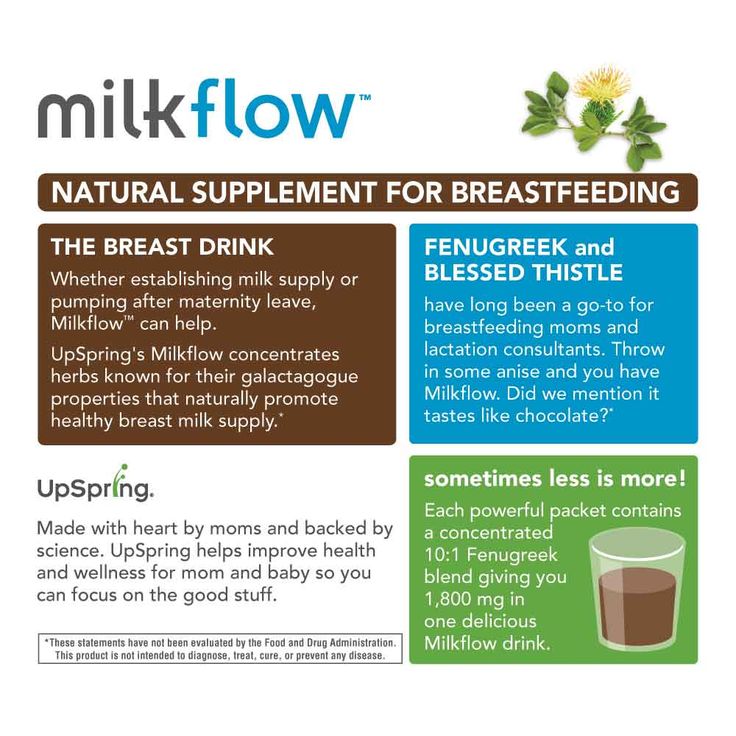 I only included products that testers claimed tasted good, including the delectable Milkmakers cookies, but admittedly, some of them are best categorized as “palatable.”
I only included products that testers claimed tasted good, including the delectable Milkmakers cookies, but admittedly, some of them are best categorized as “palatable.”
If you're looking for the best lactation supplements to boost your supply, these are the best of the bunch.
1
Best Mix and Go
UpSpring
Milkflow Electrolyte Breastfeeding Supplement Drink Mix
Now 30% off
$10 AT AMAZON $13 AT WALMART $15 AT BUY BUY BABY
2
Best Brewer's Yeast
OAT MAMA
Brewer's Yeast Powder for Lactation
$21 AT AMAZON
3
Best System
Pink Stork
Nursing Bundle
$45 AT AMAZON
4
Best Cookies
Munchkin
Oatmeal Chocolate Chip (10-Count)
$23 AT AMAZON $22 AT WALMART $23 AT BED BATH AND BEYOND
5
Best Crunchy Supplement
Boobie Brands
Superfood Granola Snack and Lactation Supplement
$9 AT AMAZON $9 AT WALMART $9 AT BED BATH AND BEYOND
6
Best Tea
Traditional Medicinals
Organic Mother's Milk Women's Tea
$9 AT AMAZON
Cat Bowen Parenting Editor Cat Bowen is the parenting editor at BestProducts.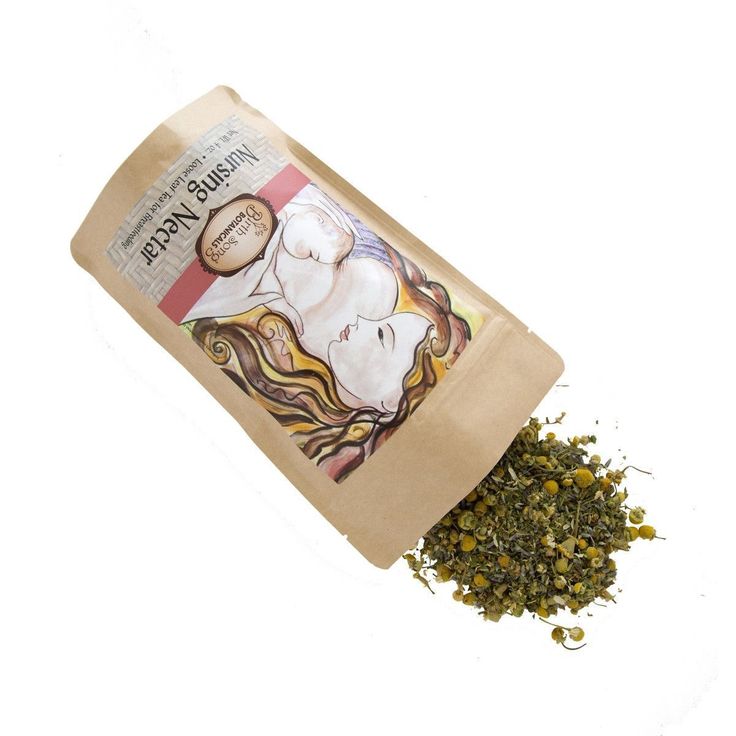 com where she researches all of the best products for families from pre-conception through their teen years, focusing on matching scientific evidence with real-life needs.
com where she researches all of the best products for families from pre-conception through their teen years, focusing on matching scientific evidence with real-life needs.
Formulas to improve lactation: how formulas for nursing mothers work | Nutrilak
09/23/2019 24548
Article contents
- Signs of insufficient lactation
- How nursing formulas work
- Additional recommendations for improving lactation
- NutriMa lactation formula Lactamyl
Mother's milk is a valuable food product for a child in the first months of life. It contains all the substances necessary for the health and proper development of the baby, and breastfeeding makes the emotional connection between mother and child even closer.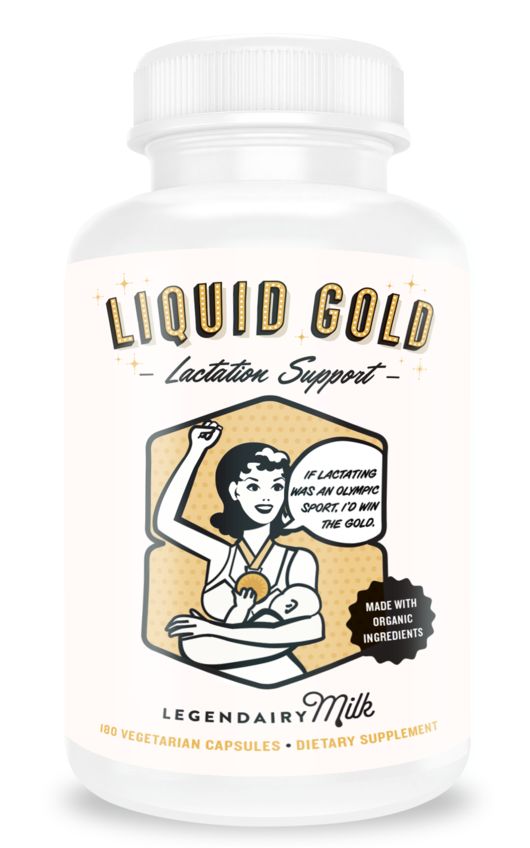 Therefore, along with the lack of milk, the mother has anxiety. In fact, there are usually no serious reasons for alarm, and mixtures to improve lactation can help save the situation.
Therefore, along with the lack of milk, the mother has anxiety. In fact, there are usually no serious reasons for alarm, and mixtures to improve lactation can help save the situation.
First of all, it is important to remember that the formation of lactation is a gradual process. Therefore, during the first weeks after childbirth, it is too early to draw conclusions about the "productivity" of the mammary glands, even if it seems that there is not enough milk: stress can negatively affect lactation. But some signs still require special attention, as they may directly or indirectly indicate that the baby does not have enough breast milk.
- The child has no health problems, but he is not gaining weight well. And two weeks after birth, he did not restore the "loss" - the natural loss of body weight.
- Baby urinates infrequently, less than 6-8 times a day.
- The child cries often and, it seems, for no reason.
- The baby needs to breastfeed already 1-1.
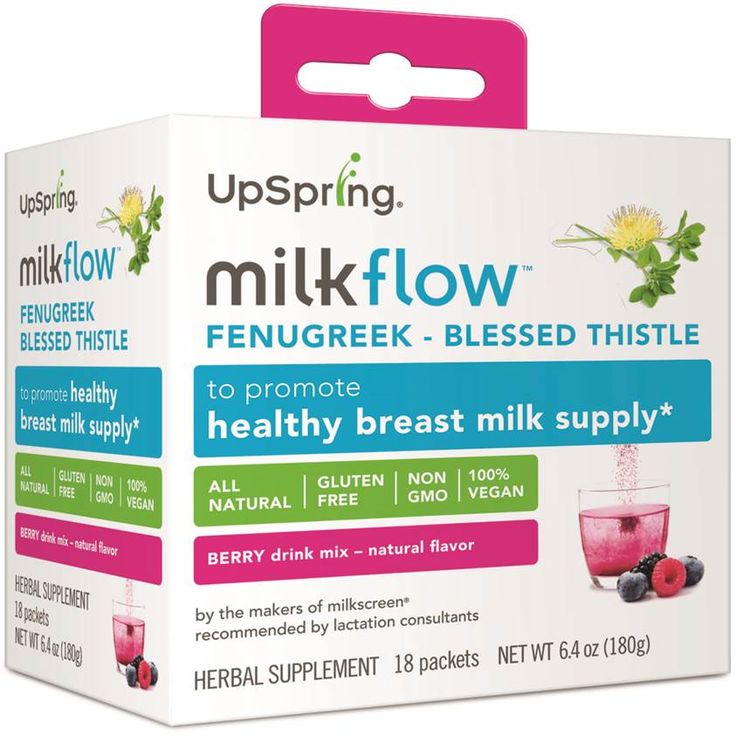 5 hours after the previous feeding, and this is repeated from time to time.
5 hours after the previous feeding, and this is repeated from time to time. - Baby does not let go of the breast for a long time (feedings last longer than 30 minutes).
- Expression of milk does not bring results: it is not present, or it is allocated in a meager amount.
- The child has "hungry constipation": feces are dense and dry, and bowel movements are rare, up to one bowel movement in 2 days.
- The child greedily grabs the breast, after several sucking movements he throws it away and becomes irritated - naughty and cries.
How nursing formulas work
The mixture for increasing lactation has a lactogenic effect (increases the secretion of breast milk) due to a special composition. It may include various ingredients: nettle, anise, fennel, cumin and other plant materials that can help increase the volume of milk.
The indirect effect of such mixtures deserves special attention.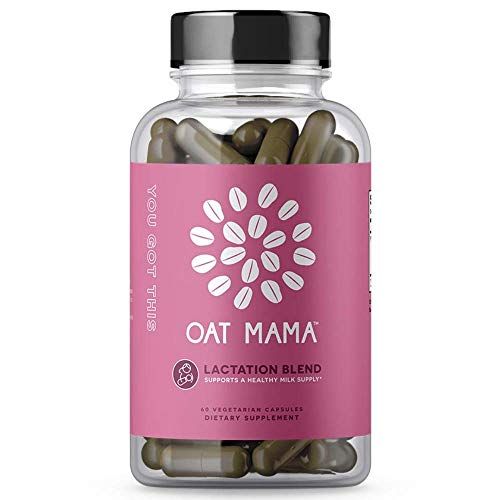 They contain substances necessary for the body of a nursing mother to replenish energy and recover in the postpartum period. This can help increase the secretion of milk and normalize its composition due to the fact that the deficiency of important substances is constantly replenished in the body of the nursing mother.
They contain substances necessary for the body of a nursing mother to replenish energy and recover in the postpartum period. This can help increase the secretion of milk and normalize its composition due to the fact that the deficiency of important substances is constantly replenished in the body of the nursing mother.
The main components of such mixtures include:
- prebiotics, which may help restore bowel function and prevent postpartum constipation;
- whey protein that improves the quality of protein, promotes its easy absorption and replenishes the body's need for amino acids necessary for quality lactation;
- omega-3 - a valuable polyunsaturated fatty acid that contributes to the correct formation of vision and the development of the child's brain;
- vitamins E, C, D, group B, micro and macro elements (calcium, phosphorus, iodine) — substances necessary for the full development of the child, as well as for the recovery of the body after childbirth and the prevention of vitamin and mineral deficiency in a nursing mother.
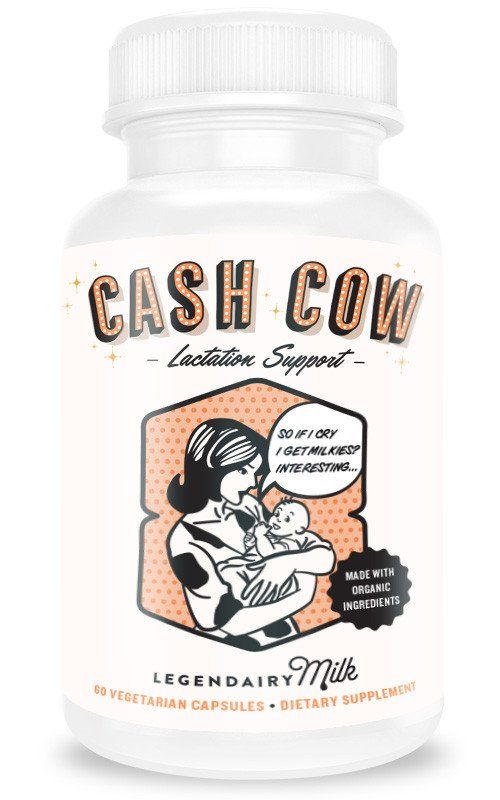
Additional recommendations for improving lactation
Drinks to increase lactation will be more useful if you also observe other conditions necessary for the production of breast milk:
- correction of the diet with a predominance of easily digestible and highly nutritious foods in it - this will allow the body to avoid unnecessary energy expenditure on the assimilation of "heavy" and complex dishes;
- a sufficient amount of night sleep: the state of the nervous system is directly related to the quality of lactation, and night rest is a natural recovery after emotional stress;
- exclusion or minimization of stress factors that negatively affect recovery after childbirth and, accordingly, the quality of lactation.
It is important to remember that the most effective is an integrated approach to the establishment and maintenance of lactation, in which mixtures for nursing mothers only supplement other methods if necessary.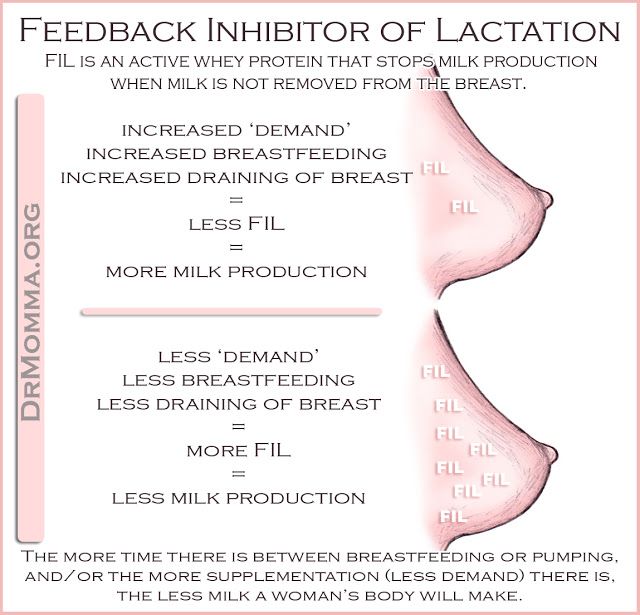
NutriMa lactation formula Lactamyl
NutriMa Lactamil is a mixture to improve lactation, which takes into account not only the needs of the body of a nursing mother, but also the features of her lifestyle.
- The composition of specialized nutrition includes whey protein, prebiotics (inulin), omega-3, a complex of vitamins and minerals that a woman's body needs after childbirth.
- Nettle, anise, fennel and cumin are lactogenic and may increase breast milk volume.
- The mixture is easy to prepare and does not require special conditions or a lot of time for this - just dissolve the powder in warm water according to the instructions.
- The ready mix can be used as a drink or as an addition to tea, cocoa, cereals and other dishes that a nursing mother loves.
(14 ratings; article rating 3.8)
Too much milk? Reduced lactation
Sometimes you may feel like you are producing too much milk, especially in the first weeks of breastfeeding.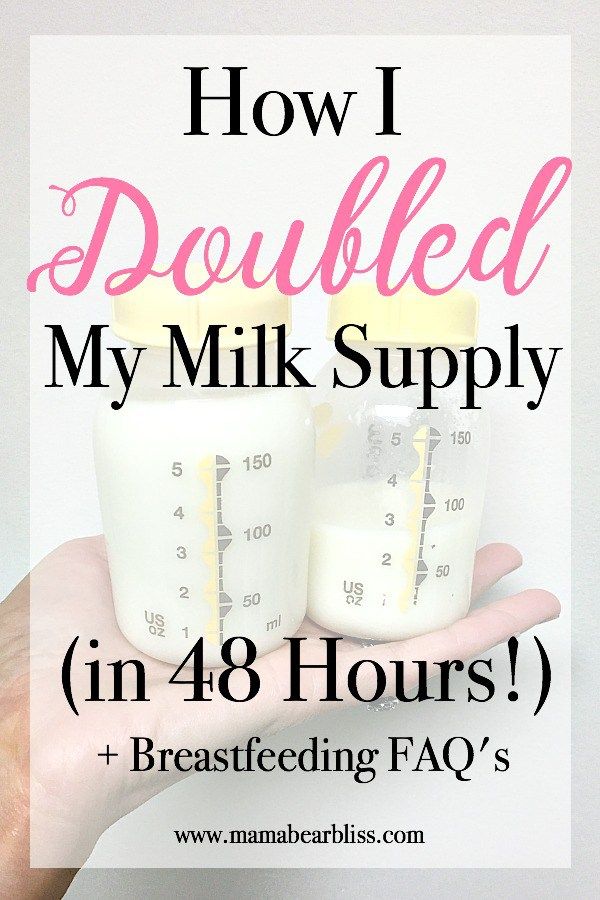 After reading our article, you will find out if you really have too much milk, and what can be done to reduce it.
After reading our article, you will find out if you really have too much milk, and what can be done to reduce it.
Share this information
Breast milk is very healthy, so it's good to have a lot of it, right? However, this is not always the case. Babies can sometimes have a hard time coping with the rapid rush of milk that usually accompanies excess lactation. And mothers who have too much milk often experience discomfort due to the constant leakage of milk and often suffer from mastitis.
Fortunately, there are a number of ways to help in this situation. But before you use them, answer two important questions:
Do I really have too much milk?
Some of the symptoms of over-lactation (listed below) can occur for very different reasons. You should not try to reduce the production of breast milk, if you are not sure that it is the overabundance of it that is the main problem. Otherwise, this can lead to the fact that your baby will produce less milk than your baby needs, especially in the critical first month when production is just being established.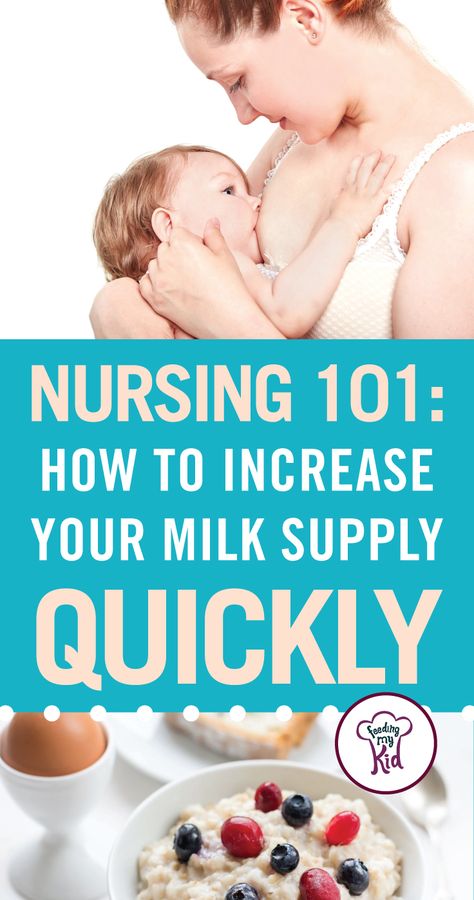
Is being overweight a problem for me or my baby?
If you are sure that you have too much milk, but this does not cause problems for you and your baby, you do not need to do anything. In most cases, everything returns to normal within the first few months. As the baby grows, he will learn to better cope with the rapid flow of milk and will feed with pleasure.
Leakage is not always a sign of too much milk
During the first four to six weeks of your baby's birth, the level of prolactin, the hormone responsible for milk production, will rise each time the breast is emptied. In these first weeks, the breast learns to produce milk in the amount that the baby needs, depending on the time of day. Therefore, excessive leakage, rapid filling of the breast, and even splashing of milk during a rush are the norm. 1
At the same time, your baby is learning to suck and swallow milk, so you shouldn't be surprised if he suddenly coughs or chokes when he suckles.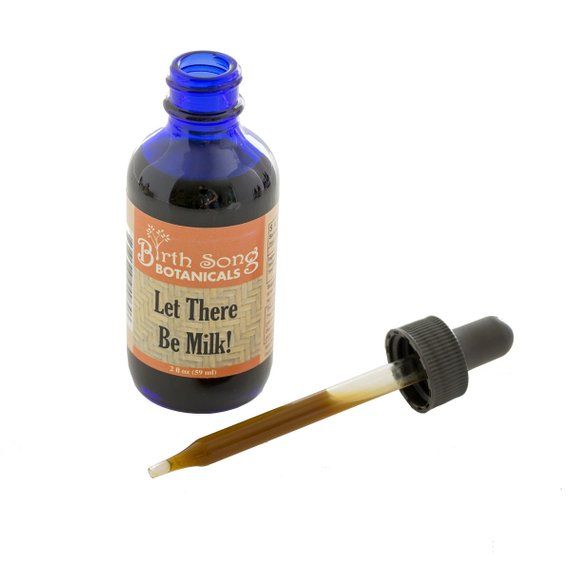
After about four to six weeks, the spikes in prolactin levels will begin to fade and milk production will become more balanced, adjusting to your baby's needs on a supply and demand basis. 2 However, given the many hormonal changes that occur in the body of a young mother, such a restructuring may take some time. In some mothers, milk production is established quickly, in others a little longer.
Behavior of the child, which may indicate an excess of milk
When overproduced, milk is usually released very quickly, especially during the first flush. As a result, the baby may cough or choke at the beginning of a feed, push back, or hold the breast loose in the mouth. The baby may pull away from the chest, frightened by a quick rush, and then cry because he hasn’t eaten. He can swallow milk in large volumes and with a lot of air, and after that he will spit up a lot. Try to be as careful as possible when you help him burp - sudden movements combined with a full tummy can cause the baby to vomit and scare him even more.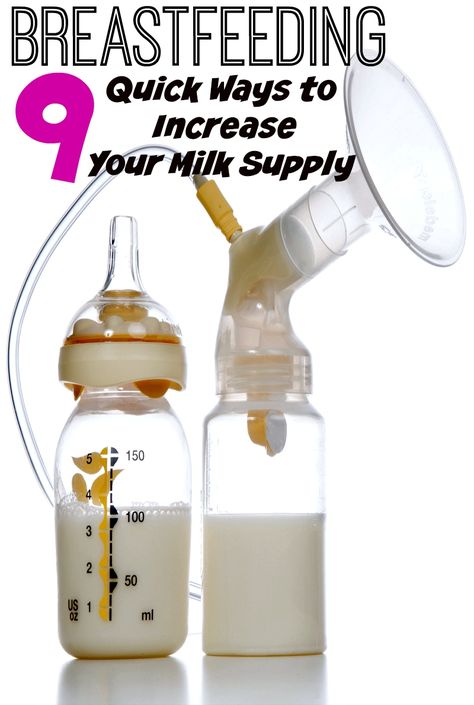
At the start of a feed, milk is relatively low in fat and consists mainly of lactose (sugar) and proteins. As the breast is fed and emptied, the fat content constantly increases. In the case of excess milk production, your baby may feel full before he completely empties his breast. This means that he will get a lot of lactose-rich milk, but not enough fat-rich milk that comes towards the end of a feed. Excess lactose instead of a balanced diet can make digestion difficult and cause hard, frothy, and greenish stools.
Oddly enough, in such a situation, the baby may constantly want to eat and behave restlessly between feedings. Despite the high calorie content, the low fat content of milk prevents it from being fully satiated. It is the fat contained in food that gives us a feeling of satiety. What happens if you eat a few dozen rice crackers or a slice of cheese with a cookie instead? You will fill up on cheese faster, as it is more saturated with fats.
However, all of these symptoms can be caused by completely different problems, such as reflux, allergies, or even vice versa, insufficient milk production.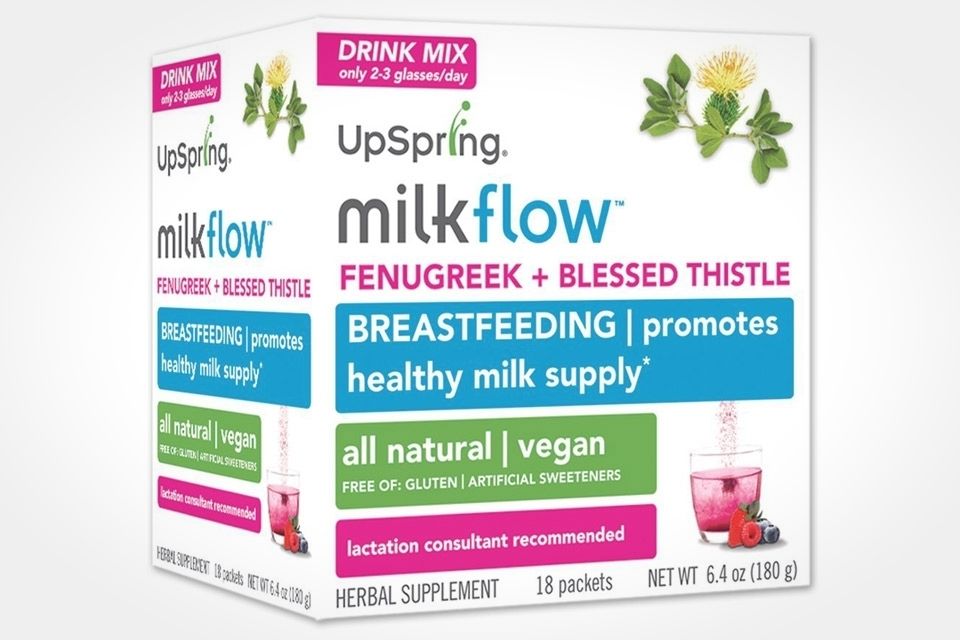 An excess of breast milk can indeed cause these symptoms, but only if they are accompanied by excessive weight gain. Children usually dial around 900 g per month, but in the case of an excess of milk, they can gain much more, often almost twice as much. 1 If you feel like you are having too much milk but your baby is gaining weight normally, contact your lactation consultant or your healthcare provider.
An excess of breast milk can indeed cause these symptoms, but only if they are accompanied by excessive weight gain. Children usually dial around 900 g per month, but in the case of an excess of milk, they can gain much more, often almost twice as much. 1 If you feel like you are having too much milk but your baby is gaining weight normally, contact your lactation consultant or your healthcare provider.
Symptoms that may indicate an excess of milk in mothers
Mothers with an excess of breast milk often experience swelling and tightness in the breast, which constantly seems full. 3 As already noted, the leakage of breast milk in the first six weeks does not indicate its excess. However, if this continues at every feeding and after this period, it may be that the problem is in the overabundance.
A baby cannot always empty a full breast, so when there is an excess of breast milk, blockage of the milk ducts or periodic bouts of mastitis often occur.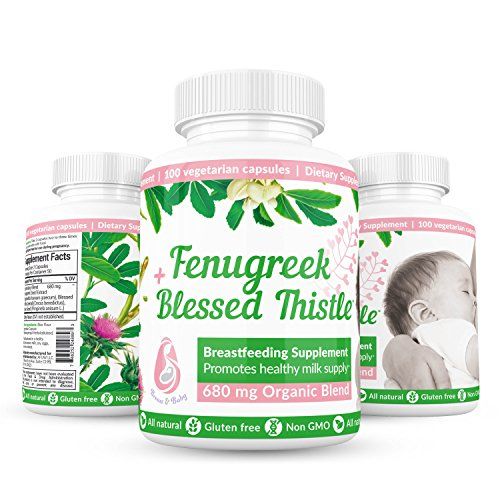 However, these problems can also be caused by other reasons.
However, these problems can also be caused by other reasons.
How to reduce milk production
If you have found that you have too much breastmilk and this is causing you concern, here are a few simple things you can do to help. For some mothers, they are enough.
- Try to feed in a relaxed position. Reclining or lying down feeding will allow the baby to better control the process. In this position, the baby sets the rhythm of feeding himself and can always raise his head to take a break if the milk is released too quickly. Don't forget to put a towel over to soak up spilled milk.
- Release pressure. If full breasts make you uncomfortable, try expressing some milk by hand or with a breast pump, but try to express as little milk as possible. Every time you empty your breast, you send a signal to her to produce even more milk. Therefore, pumping provides short-term relief, but with prolonged use, it can only aggravate the situation.
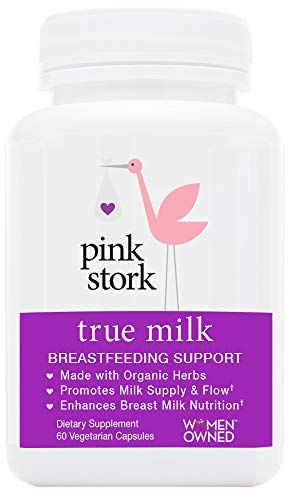 If you need to express and store milk to feed your baby when you are not around, it is best to address the problem of excess production first.
If you need to express and store milk to feed your baby when you are not around, it is best to address the problem of excess production first. - Try bra pads. If you have milk leaks, put special pads or pads in your bra to collect milk* to keep your underwear dry. If your milk leakage is moderate and already decreasing, or your breasts leak slightly during pregnancy, ultra-thin disposable pads will help you feel confident in any life situation.
- Avoid teas and lactation supplements. If you have been drinking teas, eating special biscuits, or taking supplements to improve breast milk production, this should be stopped now to resolve the problem.
Breast Watch to Reduce Milk Production
If all of the above fail, you can try a technique called breast watch to better control milk production. However, before trying this method, check with a lactation consultant or healthcare provider.
On breastfeeding, you feed your baby on demand, but only on one breast for four hours. The second breast during this time is strongly filled. Since breast milk contains what is known as a "feedback lactation inhibitor", due to overfullness, the body sends a signal to that breast to slow down milk production. This is a natural way to protect the breast from endless filling.
The second breast during this time is strongly filled. Since breast milk contains what is known as a "feedback lactation inhibitor", due to overfullness, the body sends a signal to that breast to slow down milk production. This is a natural way to protect the breast from endless filling.
This technique must be applied for 24 hours, changing breasts every four hours. If the milk does not become less, try increasing the duration of the "watch" to six hours.
Method of complete emptying and "breast duty"
If after another day there is still a lot of milk produced,
you can try another version of this method, which is recommended in cases of extreme excess. It is called "complete emptying and duty of the breast." 3
In this method, both breasts must be completely emptied in the morning with an electric breast pump and the baby should be fed immediately. The flow of milk will be weaker and allow the baby to eat calmly. In addition, he will get more fat-rich milk, which comes at the end of feeding, which means he will feel more full.
After that, you can continue the "breast watch" for four hours, as described above. If that doesn't help, try increasing the interval to six, eight, or twelve hours the next day, depending on the extent of the problem. Before using this technique, be sure to consult with your doctor.
You may not need to empty your breasts completely after the first use of this technique, but some mothers have to do this once or twice. Improvement usually occurs within the first two days or a little later, but in no case should "breast watch" be used for more than five days.
Literature
1 Morbacher N. Breastfeeding answers made simple. Amarillo TX , USA : Hale Publishing ; 2010. - Morbacher N., "Simple answers to questions about breastfeeding." Amarillo, Texas, USA: Publishing Hale Publishing "2010.0214 et al .